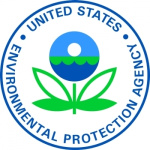- Industry: Government
- Number of terms: 11955
- Number of blossaries: 0
- Company Profile:
U.S. Environmental Protection Agency (EPA) is a federal agency responsible for the development and enforcement of regulations for human health and environment protection. The agency researches and sets standards for environmental programs and delegates. It was founded in 1970 following the proposal ...
Liquid (mainly water) that percolates through a landfill and has picked up dissolved, suspended, and/or microbial contaminants from the waste. Leachate can be compared to coffee: water that has percolated down through the ground coffee.
Industry:Agricultural chemicals
Tracking of hazardous waste from "cradle to grave" (generation through disposal), with accompanying documents known as "manifests."
Industry:Agricultural chemicals
The biochemical method by which a chemical reacts in a living organism.
Industry:Agricultural chemicals
All wastes from hospitals, clinics, or other health care facilities ("Red Bag Waste") that contain or have come into contact with diseased tissues or infectious microorganisms. Also referred to as infectious waste which is hazardous waste with infectious characteristics, including: contaminated animal waste, human blood and blood products, pathological waste, and discarded sharps (needles, scalpels, or broken medical instruments).
Industry:Agricultural chemicals
Microorganisms that kill or inhibit pests, including insects or other microorganisms. Sometimes microorganisms get rid of pests simply by growing larger in numbers, using up the pests' food supply, and invading the pests' environment.
Industry:Agricultural chemicals
Bacteria, yeasts, simple fungi, algae, protozoans, and a number of other organisms that are microscopic in size. Most are beneficial but some produce disease. Others are involved in composting and sewage treatment.
Industry:Agricultural chemicals
Thin coatings of powdery fungi that can grow on damp surfaces like bathroom tiles and corners of the bathtub.
Industry:Agricultural chemicals
A measure of concentration used in the measurement of fluids. Mg/l is the most common way to present a concentration in water and is roughly equivalent to parts per million.
Industry:Agricultural chemicals
Measures or techniques that reduce the amount of wastes generated during industrial production processes; this term also is applied to recycling and other efforts to reduce the volume of waste going to landfills. This term is interchangeable with waste reduction and waste minimization.
Industry:Agricultural chemicals
Tiny eight-legged animals that live off plants, animals or stored food.
Industry:Agricultural chemicals
